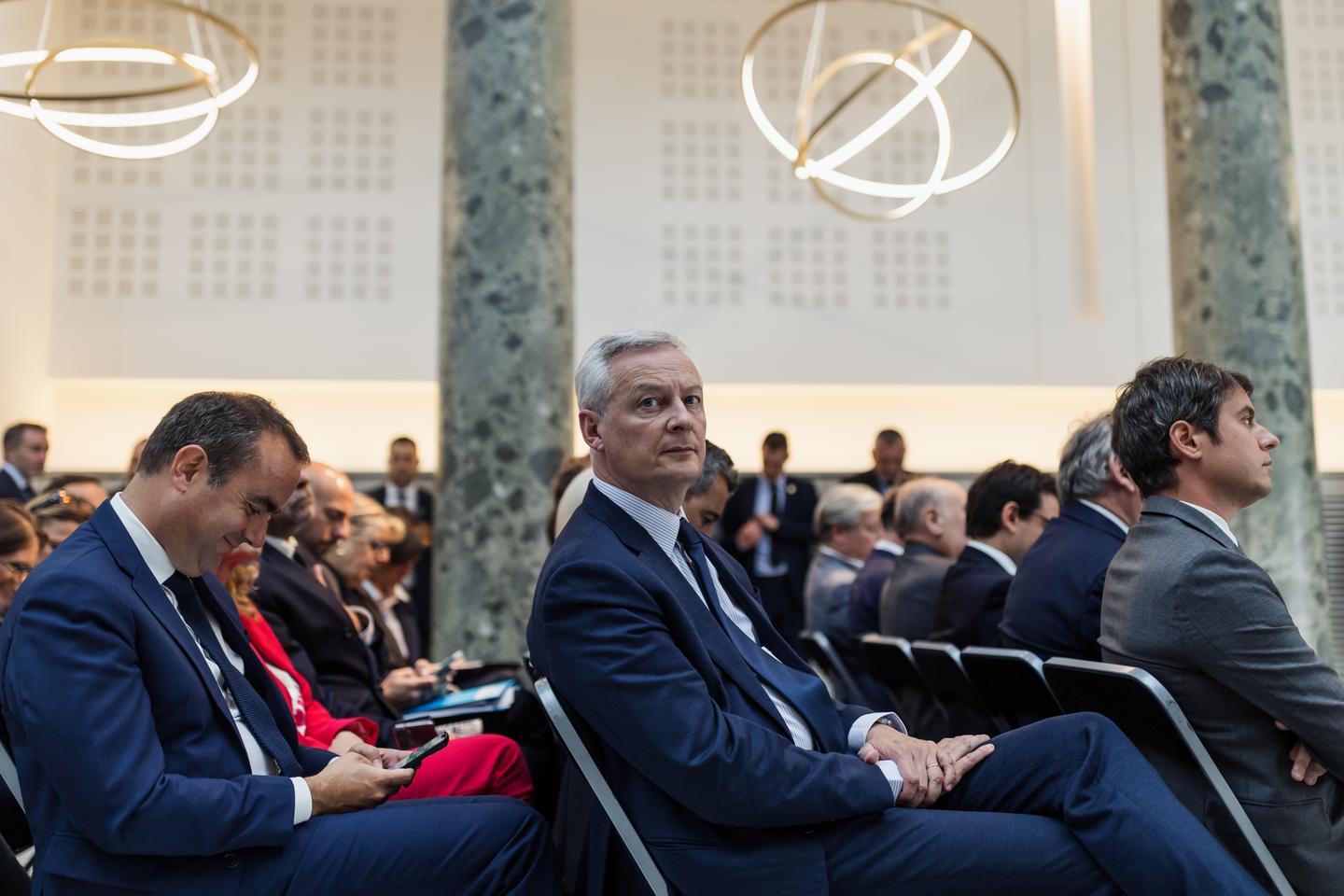The European Commission on Wednesday, June 19, reprimanded France for breaching the European Union’s budget rules under President Emmanuel Macron, in the runup to snap elections marked by lavish spending promises. Alongside France, the EU’s executive arm said “the opening of a deficit-based excessive deficit procedure is warranted” for Belgium, Italy, Hungary, Malta, Poland and Slovakia.
The procedure kickstarts a process forcing a debt-overloaded country to negotiate a plan with Brussels to get back on track. The seven countries had deficits – the shortfall between government revenue and spending – above 3% of gross domestic product, in violation of the bloc’s fiscal rules.
The news will be a blow to Macron as it is the first time France returns to the EU’s public spending sin bin since he came to power in 2017. And it sets the stage for a potential clash between Paris and Brussels following elections on June 30 and July 7 – in which the far right and left, ahead in the polls, are pledging to spend more at a time when France will need to make cuts.
Macron plunged France into political turmoil by calling the snap vote after his party’s crushing defeat to the far right in the EU elections earlier this month. Finance Minister Bruno Le Maire has warned that France could be thrown into a debt crisis if the spending programs of either the far right or a new left-wing alliance were adopted.
The political uncertainty has hurt French stocks as Paris, which was Europe’s biggest stock market by valuation, lost its crown this week to London.
‘No return to austerity’
Brussels is reprimanding nations for the first time since the EU suspended the rules after the 2020 Covid pandemic and the energy crisis triggered by the Ukraine war, as states propped up businesses and households with public money. The EU spent two years during the suspension overhauling the budget rules to make them more workable and give greater leeway for investment in critical areas like defense. But two sacred goals remain: a state’s debt must not go higher than 60% of national output, with a public deficit of no more than 3%.
“After almost four years under the General Escape Clause, our economic and fiscal policies are now entering a new cycle,” the EU’s economy commissioner, Paolo Gentiloni, said in a statement. “This does not mean ‘back to normal,’ because we are not living in normal times; and definitely not ‘back to austerity,’ because this would be a terrible mistake.”
The Commission will formally propose opening excessive deficit procedures for the seven countries in July to the EU’s finance ministers. It also noted in Wednesday’s statement that Romania had “not taken effective action to correct” its excessive deficit, despite opening a procedure in 2020 based on 2019 data. The EU countries with the highest deficit-to-GDP ratios last year are Italy (7.4%), Hungary (6.7%), Romania (6.6%), France (5.5%) and Poland (5.1%).
Break with the past
Countries failing to remedy the situation can in theory be hit with fines of 0.1% of gross domestic product (GDP) a year, until action is taken to address the violation. In practice, though, the Commission has never gone as far as levying fines – fearing it could trigger unintended political consequences and hurt a state’s economy.
New
Le Monde’s app
Get the most out of your experience: download the app to enjoy Le Monde in English anywhere, anytime
Download
Member states must send their multi-annual spending plans by October for the EU to scrutinise and the Commission will then publish its recommendations in November. Under the new rules, countries with an excessive deficit must reduce it by 0.5 points each year, which would require a massive undertaking. But the rules also now give greater flexibility for investment in critical areas like defense and the green and digital transition.
Adopted in 1997 ahead of the arrival of the single currency in 1999, the rules known as the Stability and Growth Pact seek to prevent lax budgetary policies by setting the strict goal of balanced accounts.

